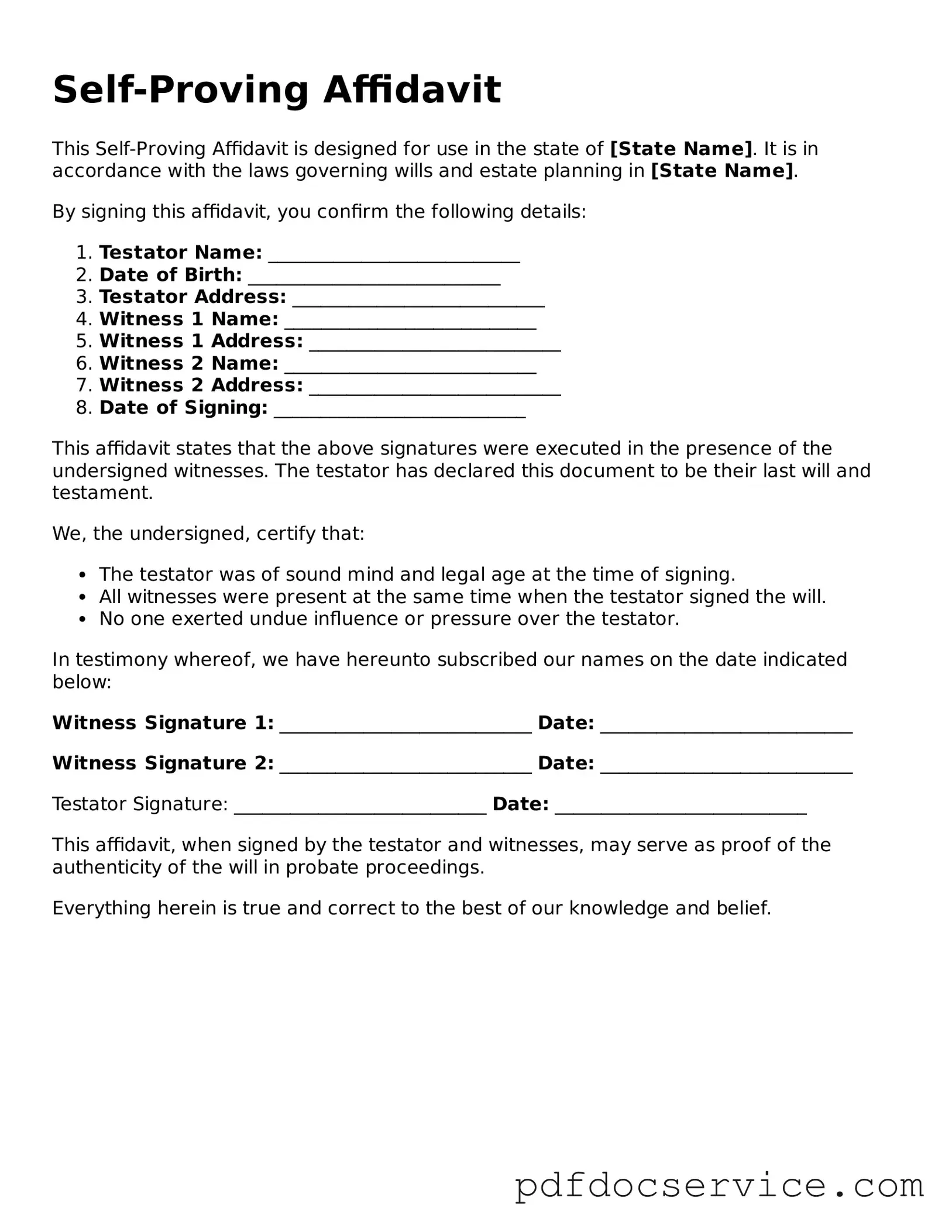What is a Self-Proving Affidavit?
A Self-Proving Affidavit is a legal document that verifies the authenticity of a will. It is typically signed by the testator (the person making the will) and witnesses in the presence of a notary public. This affidavit serves to simplify the probate process by eliminating the need for witnesses to testify about the will's validity after the testator's death.
Why is a Self-Proving Affidavit important?
This affidavit is important because it provides a streamlined way to prove the validity of a will. When a will includes a Self-Proving Affidavit, it can be accepted by the probate court without requiring additional witness testimony. This can save time and reduce complications during the probate process.
Who should use a Self-Proving Affidavit?
Anyone creating a will can benefit from including a Self-Proving Affidavit. It is particularly useful for individuals who want to ensure that their wishes are carried out smoothly after their passing. This document is especially recommended for those who may not have reliable witnesses available at the time of probate.
What are the requirements for a Self-Proving Affidavit?
To be valid, a Self-Proving Affidavit generally must meet the following requirements:
-
The testator must sign the will in the presence of at least two witnesses.
-
The witnesses must also sign the affidavit in the presence of the testator and a notary public.
-
The notary public must complete the affidavit, verifying the identities of the testator and witnesses.
How do I create a Self-Proving Affidavit?
Creating a Self-Proving Affidavit involves several steps:
-
Draft your will, ensuring it meets state requirements.
-
Include a Self-Proving Affidavit section at the end of the will.
-
Gather your witnesses and a notary public.
-
Sign the will in front of the witnesses.
-
Have the witnesses sign the affidavit in front of the notary.
-
Ensure the notary completes the affidavit and adds their seal.
Can I revoke a Self-Proving Affidavit?
Yes, you can revoke a Self-Proving Affidavit. To do so, you must create a new will or a codicil (an amendment to your existing will) that explicitly states the revocation of the previous affidavit. It is advisable to destroy any copies of the revoked documents to prevent confusion.
Is a Self-Proving Affidavit recognized in all states?
Most states in the U.S. recognize Self-Proving Affidavits, but the specific requirements can vary. It is essential to check the laws in your state to ensure compliance with local regulations. Consulting with a legal professional can provide clarity on the requirements in your jurisdiction.
What happens if I don't use a Self-Proving Affidavit?
If you do not use a Self-Proving Affidavit, the probate court may require witness testimony to establish the validity of your will. This can lead to delays and complications during the probate process, especially if witnesses are unavailable or their memories are unclear.
Self-Proving Affidavit forms can be found online through various legal document websites, or you may obtain one from an attorney specializing in estate planning. It is crucial to ensure that any form you use complies with your state's laws and requirements.

